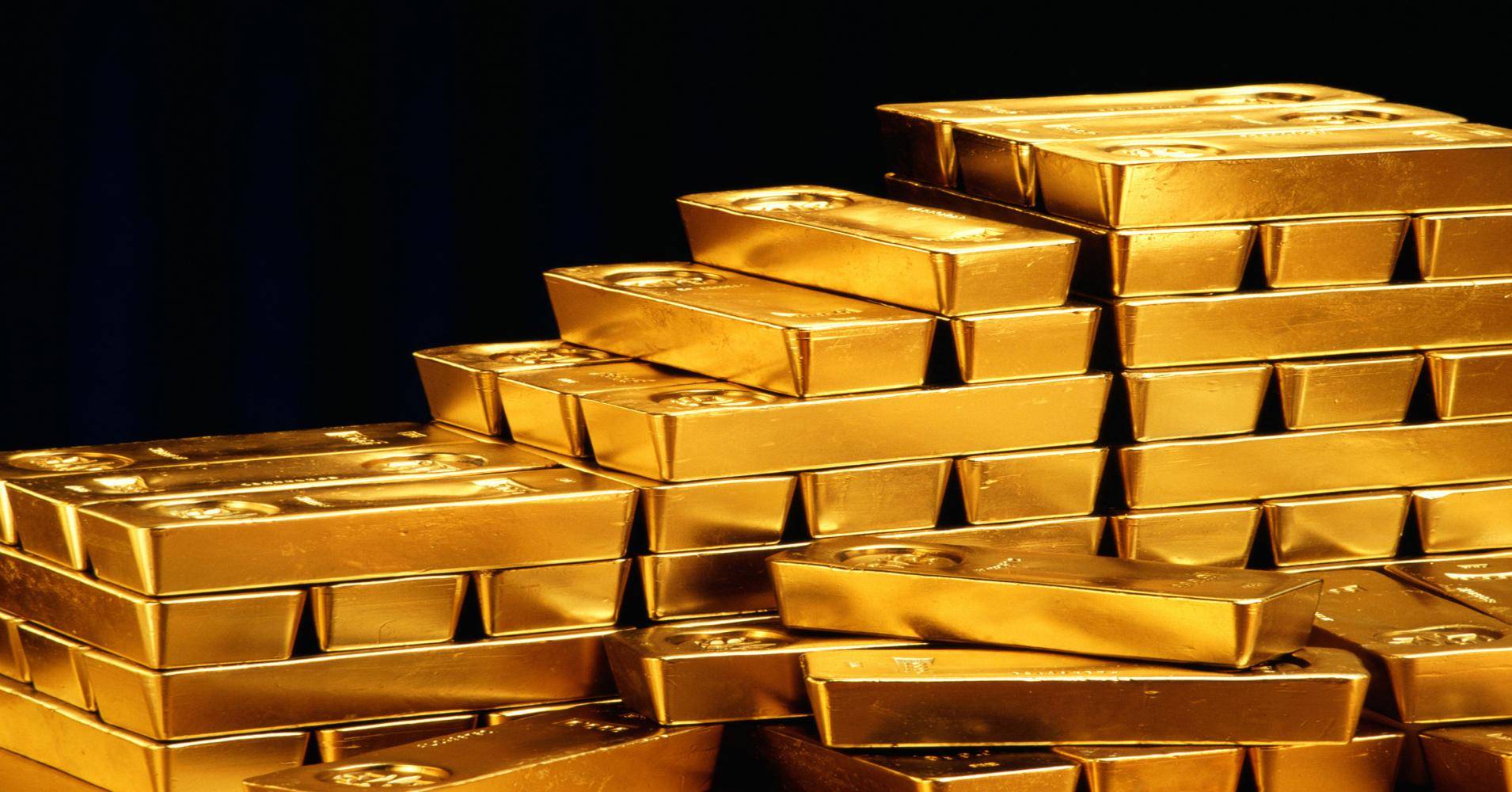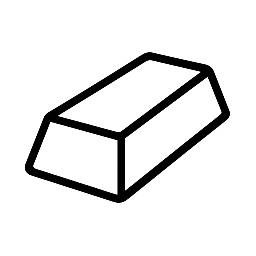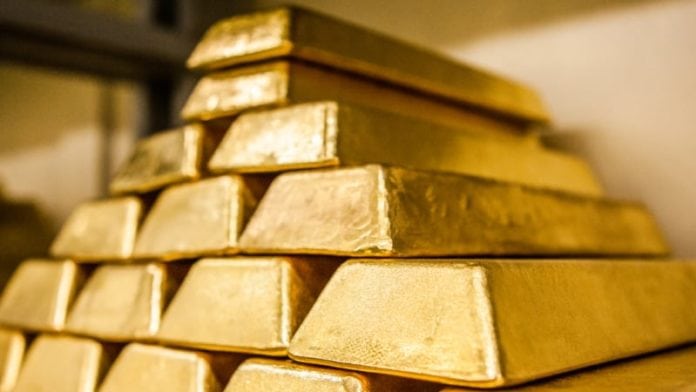Gold Price in Kenya Today per Gram | Live 24K, 22K,18K Rates
Are you an investor, jeweler, or a savvy Kenyan searching for the real-time gold price in Kenya today per gram? Stop relying on outdated foreign exchange data, in a fast-moving East African market, staying updated is the key to profit, protection, and smart investment.
Welcome to your trusted source for the official Gold Price in Kenya Today, quoted directly in Kenyan Shillings (KES).
Kenya’s gold market is shaped by a mix of global trends, USD fluctuations, and local economic stability. Whether you’re purchasing 24K pure gold bars, investing in 22K gold jewelry, or hedging against inflation, knowing the precise current gold rate is non-negotiable.
Scroll down to check today’s live gold price per gram in KES, plus an in-depth breakdown of the economic and market forces, from global interest rates to the KES/USD exchange rate, currently influencing Kenya’s gold prices.

Current Gold Price in Kenya Today (Per Gram)
| Gold Purity | Price Per Gram (KES) | Price Per Gram (USD) |
| 24K (Pure Gold) | 9,200 KES | 60.50 USD |
| 22K (Jewelry Grade) | 8,400 KES | 55.20 USD |
| 21K Gold | 8,000 KES | 52.60 USD |
| 18K Gold | 7,000 KES | 46.00 USD |
Note: Prices are updated daily based on the global gold rate and the USD-KES exchange rate.
You can check real-time updates anytime on trusted sites like Gold Buyers Africa and Buy Gold Bars Kenya Limited.
Gold Price Trends in Kenya (2020–2025)
Over the past five years, gold prices in Kenya have shown a steady upward trend, driven by:
- Global inflation and weaker currency values
- Increased demand from investors seeking stable assets
- Growing exports to the UAE, India, and Europe
- Government regulation supporting certified gold dealers
Between 2020 and 2025, the average gold price per gram in Kenya increased from 5,800 KES to over 9,000 KES, marking a 55% growth.
Gold Prices in Major Kenyan Cities
| City | 24K (KES) | 22K (KES) | 18K (KES) |
| Nairobi | 9,250 | 8,450 | 7,050 |
| Mombasa | 9,180 | 8,400 | 7,000 |
| Kisumu | 9,100 | 8,300 | 6,950 |
| Eldoret | 9,220 | 8,420 | 7,020 |
Nairobi remains Kenya’s leading gold trading hub, with certified dealers operating under the Kenya Revenue Authority (KRA) and the Ministry of Mining.
Factors Influencing Gold Prices in Kenya
Gold prices fluctuate daily due to both local and international factors. The key drivers include:
- Global Market Prices: Changes in international gold rates directly impact Kenya’s gold prices.
- Exchange Rate: The USD-KES exchange rate plays a major role in determining local prices.
- Import Costs: Shipping, customs, and certification fees influence final retail prices.
- Demand & Supply: Seasonal jewelry demand and export activity affect pricing.
- Government Policies: Export taxes and licensing requirements can slightly adjust gold values.
24K, 22K & 18K – Understanding Gold Purity Levels
| Purity | Composition | Description |
| 24K Gold | 99.9% pure | Best for investment bars & bullion |
| 22K Gold | 91.7% pure | Common for jewelry, durable & shiny |
| 18K Gold | 75% pure | Often used for ornaments & designer jewelry |
If you’re buying gold bars for investment, always choose 24K gold from certified dealers like Buy Gold Bars Kenya Limited or Gold Buyers Africa.
Kenya’s Gold Market Overview (2025)
Kenya’s gold market is becoming one of the most organized in East Africa. The government has increased its monitoring of gold exports, while several certified dealers now provide transparent trading options.
- Key Gold Sources: Migori, Kakamega, Turkana, and Busia
- Refining & Certification: Overseen by Kenya Bureau of Standards (KEBS)
- Exports: Mainly to Dubai, India, and South Africa
This structure ensures that gold buyers in Kenya access authentic, certified, and investment-grade bullion.
Where to Buy Gold in Kenya
If you plan to purchase gold bars or jewelry in Kenya, consider these trusted sources:
- Buy Gold Bars Kenya Limited (Nairobi): Certified 24K gold bar dealer.
- Gold Buyers Africa: Offers gold rates, export support & bulk purchase options.
- Kenya Bullion Exchange: For traders and investors looking for high-volume bullion.
- Local Jewelers (Mombasa, Nairobi): For 18K and 22K jewelry gold.
Always request a certificate of authenticity and confirm that the dealer is KRA-licensed.
2026 Gold Price Outlook: Expert Predictions for the Kenyan Market
Summary: Global economic uncertainty, the Kenyan shilling’s (KES) path, and rising regional demand will be the three main forces shaping Kenya’s 24K gold price in 2026. Below I give a clear, scenario-based outlook (bear / base / bull), explain the drivers and risks, and finish with pragmatic recommendations for Kenyan buyers, traders and investors.
Important note: I don’t have live market access in this reply. The scenarios below use a recent 2025 reference price of ~9,200 KES per gram for 24K as the starting point and model plausible moves for 2026. Treat the numeric ranges as directional forecasts, not guaranteed outcomes.
Macro picture: why 2026 will be different
- Global economic uncertainty.
- Slower growth or recession risks in advanced economies typically push investors into safe havens (gold up).
- Conversely, rapid global monetary tightening or a strong U.S. dollar often pressures gold (gold down in USD terms).
- Currency dynamics (KES).
- If the Kenyan shilling remains stable or strengthens (better exports, higher remittances, improved reserves), local (KES) gold prices may be more stable.
- If KES weakens, local gold prices (KES/gram) will rise even if global USD-denominated gold is flat, affecting domestic affordability.
- Regional demand growth.
- Rising middle-class demand in East Africa, higher export activity, and stronger interest from diasporas lead to more domestic gold consumption and investment demand.
- Supply, certification and export flows.
- Improved mining regulation, more certified dealers, and streamlined exports could increase liquidity and transparency, supportive for price stability and investor confidence.
Three scenarios for 24K gold price in Kenya (per gram) — 2026
Starting point: 9,200 KES/gram (24K, 2025 reference). I model three plausible scenarios for 2026.
1) Bear scenario (risk-off / USD strong / KES stable or slightly stronger)
- Assumption: Global growth surprises to the upside; USD strengthens; gold pressure; local demand soft.
- Estimated move: -10% from 9,200 KES → 8,280 KES/gram.
- Calculation: 9,200 × 0.10 = 920; 9,200 − 920 = 8,280.
- USD equivalence (approx. 152 KES/USD): 8,280 ÷ 152 ≈ 47 USD/gram.
- Implication: Lower local KES price could incentivize jewelers to buy but may reduce speculative buying.
2) Base (most likely) scenario (moderate uncertainty, KES broadly stable)
- Assumption: Mixed macro signals, modest investor demand, steady KES.
- Estimated move: +5% from 9,200 KES → 9,660 KES / gram.
- Calculation: 9,200 × 0.05 = 460; 9,200 + 460 = 9,660.
- USD equivalence (approx. 152 KES/USD): 9,660 ÷ 152 ≈ 55 USD/gram.
- Implication: Gradual appreciation keeps gold attractive as an inflation hedge while avoiding sharp price shocks.
3) Bull scenario (safe-haven demand, KES weakens)
- Assumption: Global recession risk or geopolitical shock pushes investors to gold; KES weakens vs USD.
- Estimated move: +15% from 9,200 KES → 10,580 KES / gram.
- Calculation: 9,200 × 0.15 = 1,380; 9,200 + 1,380 = 10,580.
- USD equivalence (approx. 152 KES/USD): 10,580 ÷ 152 ≈ 61 USD/gram.
- Implication: Higher local prices spur more buying by exporters and migrants seeking to hold tangible assets, but retail demand may dip due to affordability pressure.
Key drivers to watch in 2026
- S. dollar strength & Fed policy: A stronger USD tends to cap gold’s upside in USD terms; it also affects KES through exchange-rate transmission.
- Inflation trends (global & Kenyan): Persistent inflation supports gold as an inflation hedge.
- Central bank behaviour: Any increase in central-bank gold purchases (foreign central banks or regional) can support prices.
- Kenyan macro fundamentals: FX reserves, export receipts (tea, horticulture, tourism recovery), and remittances will affect KES stability and therefore local gold pricing.
- Regulatory changes & certification rollouts: Faster certification increases market trust and can lift demand from institutional buyers.
Risks & blind spots
- Rapid policy shifts (interest-rate spikes) can make interest-bearing assets relatively more attractive vs gold.
- Improved supply or massive sell-offs by large holders could temporarily lower prices.
- Local market frictions: Poor dealer standards or scams could depress retail confidence even if macro is favorable.
- Exchange-rate volatility: A sudden KES depreciation will raise local prices but may simply reflect currency weakness rather than real gold value growth.
Practical recommendations for Kenyan stakeholders (2026)
For retail buyers / small investors
- Buy from certified dealers and insist on assay certificates.
- If you plan to hold >100g, consider secure vaulting (insured storage) rather than home storage.
- Dollar-cost average (DCA): spread purchases across time to reduce timing risk.
For traders & dealers
- Hedge exchange-rate exposure (where possible) if you handle cross-border flows.
- Strengthen compliance and KYC procedures — buyers increasingly prefer traceable, certified bullion.
For exporters & bulk buyers
- Monitor forward USD-KES swaps and consider forward contracts for large shipments.
- Lock in prices when spreads are favorable and when local liquidity is thin.
For institutions/wealth managers
- Gold can remain a 2–10% portfolio anchor in 2026, depending on client risk profile and inflation outlook.
Kenya vs Global Gold Prices
| Region | 24K Price/Gram (USD) | Difference from Kenya |
| Kenya | 60.50 | — |
| Dubai (UAE) | 59.20 | -2.1% cheaper |
| South Africa | 61.00 | +0.8% higher |
| India | 58.90 | -2.6% cheaper |
Kenya’s gold prices closely mirror international averages, but local taxes and refining charges create minor variations.
Gold Price per Gram in KES for Jewelry
Jewelry prices in Kenya are slightly higher than raw gold or bullion prices due to craftsmanship, design, and retailer markup.
| Type of Jewelry | Purity | Approx. Price per Gram (KES) | Extra Costs |
| Gold Necklace | 22K | 9,000 – 9,300 | Design + Making Charges |
| Gold Earrings | 18K | 7,500 – 7,800 | Design + Polishing |
| Gold Bracelet | 22K | 8,900 – 9,100 | Craftsmanship |
| Gold Ring | 24K | 9,600 – 9,800 | Premium Design |
Tip: Always check if the jewelry is hallmarked with its purity ( 91.6” for 22K or “99.9” for 24K).
How to Calculate Gold Price in Kenya
Knowing how to calculate gold prices helps you avoid being overcharged.
Gold Price Calculation Formula
Final Price = (Gold Rate per Gram×Weight)+Making Charges+VAT (if applicable)\text{Final Price} = (\text{Gold Rate per Gram} \times \text{Weight}) + \text{Making Charges} + \text{VAT (if applicable)}Final Price=(Gold Rate per Gram×Weight)+Making Charges+VAT (if applicable)
Example:
If 1 gram of 22K gold = KES 8,800, and you’re buying a 20-gram necklace:
- Gold value = 8,800 × 20 = KES 176,000
- Making charges (10%) = 17,600
- Total before tax = KES 193,600
- Add VAT (16%) = 30,976
- Final Price = KES 224,576
Always ask your jeweler for a breakdown invoice showing weight, gold rate, and making cost.
Gold Bars vs Jewelry Investment in Kenya
Both gold bars and gold jewelry are popular in Kenya — but they serve different purposes.
| Feature | Gold Bars | Gold Jewelry |
| Purity | 24K (99.9%) | 18K–22K |
| Liquidity | High (easily sold or exported) | Medium |
| Profit Margin | Higher (no design cost) | Lower (includes making charges) |
| Purpose | Investment & export | Personal use & gifting |
| Storage | Needs secure vault | Can be worn/stored |
| Value Retention | Excellent | Moderate (design loss) |
Practical and Proven Ways to Buy Gold Safely in Kenya
- Buy Only from Licensed and Verified Dealers
The most important rule in gold buying is to work only with certified dealers registered under the Ministry of Mining and Petroleum or the Kenya Revenue Authority (KRA).
Trusted names include:
- Buy Gold Bars Kenya Ltd
- Gold Buyers Africa
- Nairobi Bullion Exchange
Safety Tip:
Ask for the dealer’s business registration certificate, export license, and assay certificate before making payment. Avoid street sellers or unverified online platforms.
- Always Verify Gold Purity and Authenticity
Counterfeit gold is a common issue in informal markets. Always confirm the purity and authenticity before purchase.
Ways to verify:
- Check for hallmarks like “999” (24K) or “916” (22K).
- Request an assay certificate from a recognized refinery.
- Test using XRF (X-Ray Fluorescence) or acid testing kits.
- Compare serial numbers on gold bars with refinery records.
Safety Tip:
Dealers in Nairobi and Mombasa often provide instant purity verification using XRF scanners, always request this service.
- Use Secure and Traceable Payment Methods
Never pay in cash for large transactions without a paper trail.
The safest payment methods include:
- Bank Transfers (RTGS)
- SWIFT Transfers (for international buyers)
- Escrow Accounts
- Letter of Credit (LC) for high-value export deals
Safety Tip:
Avoid sending money to individuals’ personal accounts. All payments should go to registered company accounts with verifiable business details.
- Demand Proper Documentation and Receipts
Always ask for official documentation when buying gold. These protect your rights and confirm the legality of the transaction.
Documents to request:
- Purchase Invoice/Receipt with purity and weight
- Assay Certificate from a recognized lab
- Certificate of Origin (for export)
- Export Permit if shipping gold abroad
Safety Tip:
No valid documents = high risk of illegal or counterfeit gold. Walk away if a seller refuses to issue paperwork.
- Store Your Gold Safely After Purchase
Once you own the gold, proper storage is key to safety and insurance coverage.
Safe storage options:
- Bank Safety Deposit Boxes (best for high-value gold)
- Secure Home Safes with fire and theft protection
- Professional Vaulting Services in Nairobi for bulk gold storage
Safety Tip:
Avoid storing large amounts of gold at home or disclosing your holdings publicly.
Safe Ways to Buy Gold in Kenya
| Step | Safe Practice | Why It Matters |
| 1 | Buy from licensed dealers | Avoid fraud and illegal transactions |
| 2 | Verify purity and hallmark | Confirm you’re buying genuine gold |
| 3 | Use traceable payments | Protects your funds and ensures accountability |
| 4 | Demand documentation | Legal proof and resale/export validity |
| 5 | Store securely | Prevents theft and maintains asset safety |
Legal Requirements for Buying Gold in Kenya
Before investing, ensure compliance with local laws:
- Obtain gold from licensed and certified dealers
- For exports, a Mining Export Permit is required.
- Declare large transactions through KRA to prevent fraud.
- Verify gold purity using KEBS-approved testing centers.
By following these steps, you ensure a secure and transparent gold purchase.
Expert Tip for Investors
“Always monitor live gold prices daily before purchasing. Even a 1% price fluctuation can make a big difference for bulk buyers and exporters.”
— Gold Buyers Africa Analyst, 2025
For real-time gold rate updates, visit Gold Buyers Africa or [Buy Gold Bars Kenya Limited].
Frequently Asked Questions (FAQs)
- What is the gold price per gram in Kenya today?
As of today, the 24K gold price is approximately 9,200 KES per gram. - How often do gold prices in Kenya change?
Prices fluctuate daily based on global rates and currency exchange movements. - Where can I find live gold rates in Kenya?
Check Gold Buyers Africa or Buy Gold Bars Kenya Limited for live updates. - What is the price of 22K gold in Kenya?
The 22K gold price today is about 8,400 KES per gram. - How much is 1 ounce of gold in Kenya?
1 ounce (31.1g) of 24K gold costs around 286,000 KES. - Why is 24K gold more expensive?
It’s 99.9% pure, making it the highest-value form of gold. - Can I buy gold in Kenya and export it abroad?
Yes, but you must obtain a gold export license and follow KRA regulations. - What factors affect gold prices in Kenya?
Global market rates, exchange rates, taxes, and demand trends. - Is gold cheaper in Dubai than in Kenya?
Yes, slightly. Dubai’s 24K gold is typically 2–3% cheaper due to tax-free trade. - What’s the difference between 24K and 22K gold?
24K is pure gold; 22K has alloy metals for durability. - Is it safe to buy gold online in Kenya?
Yes, if you buy from licensed dealers with verifiable certificates. - Who sets the gold price in Kenya?
Local prices follow the London Bullion Market (LBMA) and global spot rates. - How can I test gold purity in Kenya?
Use KEBS-approved labs or request an assay certificate from your dealer. - Can foreigners invest in gold in Kenya?
Yes, foreign investors can buy and export gold through authorized channels. - What is the best time to buy gold in Kenya?
Prices usually dip during global market corrections, monitor live charts before purchasing.


Leave a Reply